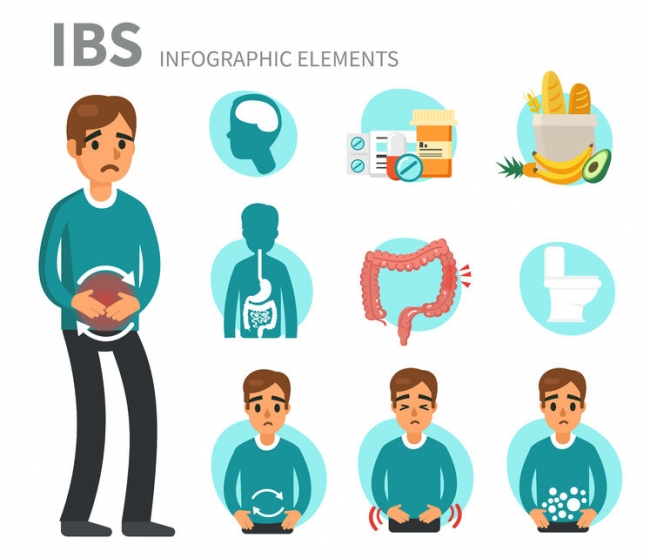Irritable Bowel Syndrome (IBS) Treatment in Russian Federation
Search and Compare the Best Clinics and Doctors at the Lowest Prices for Irritable Bowel Syndrome (IBS) Treatment in Russian Federation

Find the best clinics for Irritable Bowel Syndrome (IBS) Treatment in Russian Federation
No pricing info available
United Arab Emirates offers the best prices Worldwide
Price: $ 228
JSC Medicina Clinic, located in Spiridonyevskiy Pereulok, Moscow, Russian Federation offers patients Irritable Bowel Syndrome (IBS) Treatment procedures among its total of 288 available procedures, across 17 different specialties. Currently, there's no pricing information for Irritable Bowel Syndrome (IBS) Treatment procedures at JSC Medicina Clinic, as all prices are available on request only. There are many specialists available at the Clinic, with 10 in total, and they are accredited by JCI Accredited
- Home
- Russian Federation
WHY US?
At Medijump, we're making medical easy. You can search, compare, discuss, and book your medical all in one place. We open the door to the best medical providers worldwide, saving you time and energy along the way, and it's all for FREE, no hidden fees, and no price markups guaranteed. So what are you waiting for?

Free

Best Price

Widest Selection

Risk-Free
What you need to know about Irritable Bowel Syndrome (IBS) Treatment in Russian Federation

Irritable bowel syndrome (IBS) is a gastrointestinal problem causing long term and persistent discomfort that affects 10% to 20% of the population. It is rarely complicated and it is not life-threatening, however, it can change the way you live your life, interfere with your ability to take part in daily activities, and make you miss work more often. While some people may be able to control their symptoms by managing stress and making lifestyle and diet changes, others may need treatment that will let them live as normally as possible.
What Does the Procedure Involve?
Your doctor will perform some tests to rule out other diseases and determine which IBS type you have, whether it is constipation-predominant, diarrhea-predominant, or mixed. Then, after confirming their diagnosis, your doctor may prescribe medications, such as Alosetron to relax your colon and slow the movement of waste through the lower bowel, Eluxadoline to ease diarrhea by reducing fluid secretion and muscle contractions in the rectum, Rifaximin to decrease bacterial growth, and Lubiprostone or Linaclotide to increase fluid secretion in your small intestine and help you pass stool.
How Long Should I Stay in Russian Federation for a Irritable Bowel Syndrome (IBS) Treatment Procedure?
You should be able to leave Russian Federation right away if you do not experience any symptoms. However, it is best to consult with your doctor the ideal time for you to travel home as they may schedule a follow-up appointment to see how you are responding to the medications.
What's the Recovery Time for Irritable Bowel Syndrome (IBS) Treatment Procedures in Russian Federation?
Unless you are experiencing symptoms that interfere with your ability to perform daily activities, you usually do not need any downtime after IBS treatment.
What sort of Aftercare is Required for Irritable Bowel Syndrome (IBS) Treatment Procedures in Russian Federation?
After the treatment, you should not forget to take the medication that was prescribed. Your doctor may also advise you to talk to a dietitian to help you make diet changes and create the best diet plan for you. It is really important to eliminate high-gas food and gluten from your diet. Besides changing your diet, make sure to exercise regularly to stimulate normal contractions of your intestines and help you to feel better.
What's the Success Rate of Irritable Bowel Syndrome (IBS) Treatment Procedures in Russian Federation?
Treatment for irritable bowel syndrome is generally safe and effective as long as used as prescribed. The side effects and risks of the medications are nausea, diarrhea, and belly pain. In some cases, the medication may not be successful to improve symptoms.
Are there Alternatives to Irritable Bowel Syndrome (IBS) Treatment Procedures in Russian Federation?
If you do not want to take medicine because you are not an ideal candidate for it or due to your own personal preference, you can undergo hypnosis, mindfulness training, acupuncture, or take probiotics. Always make sure to talk to your doctor before you start any of these alternatives.
What Should You Expect Before and After the Procedure
Irritable bowel syndrome can seriously disturb your day-to-day activities, preventing you from enjoying the activities you love. After treatment, the symptoms should be gone and you can live a normal life.
Whilst the information presented here has been accurately sourced and verified by a medical professional for its accuracy, it is still advised to consult with your doctor before pursuing a medical treatment at one of the listed medical providers
No Time?
Tell us what you're looking for and we'll reachout to the top clinics all at once
Enquire Now

Popular Procedures in Russian Federation
Prices Start From $131

Prices Start From $47

Recommended Medical Centers in Russian Federation for Irritable Bowel Syndrome (IBS) Treatment

- Interpreter services
- Translation service
- Religious facilities
- Medical records transfer
- Medical travel insurance
- Health insurance coordination
- TV in the room
- Safe in the room
- Phone in the room
- Private rooms for patients available

- Interpreter services
- Translation service
- Religious facilities
- Medical records transfer
- Medical travel insurance
- Health insurance coordination
- TV in the room
- Safe in the room
- Phone in the room
- Private rooms for patients available

- Interpreter services
- Translation service
- Religious facilities
- Medical records transfer
- Medical travel insurance
- Health insurance coordination
- TV in the room
- Safe in the room
- Phone in the room
- Private rooms for patients available
Irritable Bowel Syndrome (IBS) Treatment in and around Russian Federation
The Russian Federation, or Russia, is a transcontinental country that stretches over a vast expanse of Eastern Europe and northern Asia. Once a mighty tsarist empire and a communist superpower, this massive country is enigmatic, intimidating, and fascinating all at the same time. It has everything, from the idyllic countryside and historic cities to scenic beauty and artistic riches. Today, Russia is a famous medical tourism destination. The number of medical tourists seeking high-quality healthcare continues to double each year. These medical tourists mainly come from Asian countries, such as China, South Korea, India, Japan, and Vietnam. They come to receive a wide range of medical care, with IVF treatment, dental services, cosmetic surgery, and cardiovascular surgery being the most sought-after.
Popular Parts of the Russian Federation
Most visitors are drawn to the western part of the country, particularly to Moscow and St. Petersburg. Moscow, the capital of Russia, is popular for its show-stopping architecture, rich history, amazing culture, and great food. Some of the most famous landmarks are the St. Basil’s Cathedral, the Red Square and the Lenin Mausoleum, the Moscow Kremlin, The Tretiakov Gallery, and the Wooden Palace of Tsar Alexei Mikhailovich. St. Petersburg, Russia’s second city and imperial capital, is one of the most gracious cities in Europe. People come to this city to visit the State Hermitage Museum, the Grand Palace, and Catherine Park.
Weather and Climate in the Russian Federation
There are four seasons in Russia. December to February are the winter months, which is cold and snowy, with short days and long nights. The average temperature during this season is around -10°C to 3°C. Spring comes in March, bringing warmer, but rainy weather. Summer, from June to August, is hot and humid, with an average temperature of around 12°C to 26°C. The weather can be quite unpredictable in the summer, and downpours can come unexpectedly. Autumn is from September to October and is warm and pleasant.
Getting around in the Russian Federation
The largest airport in Russia that receive the most international flights is Sheremetyevo Alexander S. Pushkin International Airport in Moscow. It serves both domestic and international flights to many cities around the globe. Since Russia is the world’s largest territory, internal flights are the fastest and most convenient way to get around. Trains have an extensive network, and, with many comfortable overnight services, is considered as the best way to get around. Buses are a great option to travel to the areas not covered by the train. Some really remote destinations may only be reached by private cars or taxis. Taxis are relatively inexpensive and widely available.
Tourist Visas in the Russian Federation
Nationals of 62 nations, including Brazil, South Africa, South Korea, North Macedonia, and Hong Kong, can visit and stay in Russia without a visa for a period of 14 to 90 days. Citizens of other countries not listed in the visa exemption agreement need a visa to enter. Electronic visas are available for citizens of several countries, including all EU countries, China, and India.
Additional Information
- Local Currency: Russian uses the Russian ruble (RUB) as its official currency. 1 USD is equivalent to 77.16 RUB.
- Money & Payments: The easiest way to get rubles is by using ATMs, which is available throughout the country. Major credit and debit cards, including MasterCard and Visa, are accepted in larger hotels and restaurants, but cash is more reliable. Some places may offer to accept euros and dollars, but this is illegal. Tipping is expected, around 10% to 15% of the bill. Always tip in cash and give it directly to the waiter.
- Local Language: There are over 100 minority languages spoken in Russia, but the official and most widely spoken language is Russian. English is spoken to some degree, especially in major cities.
- Local Culture and Religion: Most of Russia’s population adheres to Christianity, with the Russian Orthodox Church being the biggest Christian denomination. There are also small groups of Muslims, Buddhists, and Jewish.
- Public holidays: New Year’s Day, Orthodox Christmas Day, Defender of the Fatherland Day, Victory Day, Russia Day, and Unity Day are some of the most important public holidays in Russia.
Popular Searches
- Plastic Surgery in Thailand
- Dental Implants in Thailand
- Hair Transplant in Thailand
- Breast Augmentation Thailand
- Gastric Sleeve in Thailand
- Gender Reassignment Surgery in Thailand
- Laser Hair Removal in Bangkok
- Botox in Bangkok
- Dermatology in Bangkok
- Breast Augmentation in Bangkok
- Coolsculpting in Bangkok
- Veneers in Turkey
- Hair Transplant in Turkey
- Rhinoplasty in Turkey
- Stem Cell Therapy in Mexico
- Rhinoplasty in Mexico
- Liposuction in Mexico
- Coolsculpting in Tijuana
- Rhinoplasty in Korea
- Scar Removal in Korea
- Gastric Sleeve in Turkey
- Bone Marrow Transplant in India
- Invisalign in Malaysia
- Plastic Surgery in the Dominican Republic
- Tummy Tuck in the Dominican Republic
- Plastic and Cosmetic Surgery in Poland
- Rhinoplasty in Poland
- Hair Implant in Poland
- Dental Implants in Poland
- IVF in Turkey
